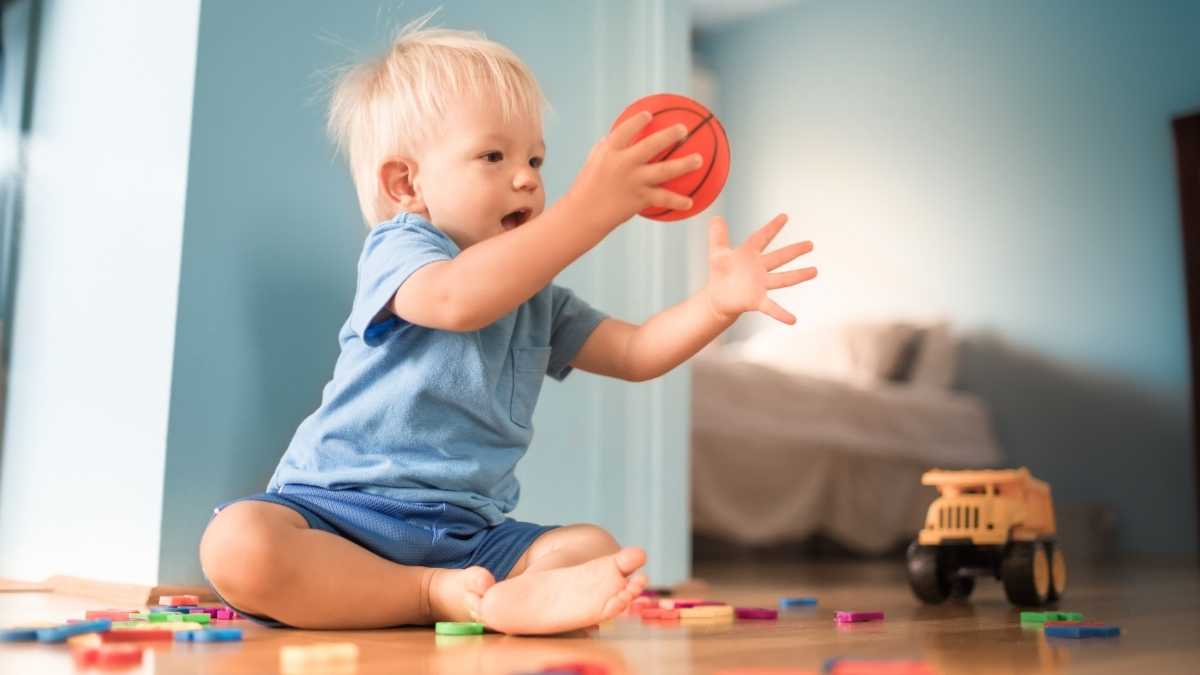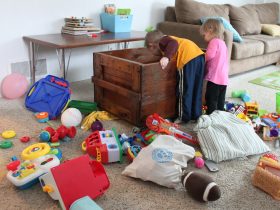Modern parenting often revolves around the idea that we must constantly engage and entertain our toddlers to support their development. However, research and child development experts suggest that too much adult-directed play can hinder a child’s creativity, problem-solving skills, and independence.
The key is not to stop playing with your child altogether but to shift from being an entertainer to a facilitator of play. By stepping back and allowing your toddler to lead, you encourage deeper cognitive engagement, self-regulation, and imaginative thinking.
1. Learn a Less Intrusive Way to Play Together
Many parents believe that “good parenting” means constantly engaging their child in structured activities. However, over-involvement can stifle a toddler’s natural curiosity and problem-solving abilities.
The Power of Observing Before Joining
Instead of immediately jumping in with suggestions, pause and observe what your child is doing. This allows you to understand their interests and join in a way that supports—rather than controls—their play.
-
Example: If your toddler is stacking blocks, resist the urge to say, “Let’s build a tall tower!” Instead, sit nearby and comment, “You’re putting the red block on top. What happens if you try the blue one?”
Follow Their Lead
Children learn best when they direct their own play. Your role is to scaffold their learning—offering just enough support without taking over.
-
Ask open-ended questions: “What do you think will happen if…?”
-
Narrate their actions: “You’re making the car go fast!” (This helps them reflect on their play without needing your intervention.)
-
Offer materials, not instructions: Instead of saying, “Let’s draw a house,” provide crayons and paper and let them decide what to create.
By stepping back, you allow your child to develop focus, creativity, and confidence in their own abilities.
2. Set Limits with Confidence, Honesty, and Respect
While independent play is crucial, toddlers still need boundaries. The key is to set limits in a way that feels respectful rather than restrictive.
Why Limits Are Necessary
Children thrive on predictability and structure. Clear, consistent limits help them feel secure while also teaching self-regulation.
-
Example: If your child throws toys, instead of saying, “Stop that!” try: “Toys are for playing. If you throw them, they might break. Let’s find a soft ball you can throw instead.”
How to Enforce Limits Without Shutting Down Play
-
Be firm but kind – Avoid harsh tones, but don’t negotiate endlessly.
-
Offer alternatives – Instead of just saying “No,” redirect to an acceptable activity.
-
Acknowledge feelings – “I see you’re frustrated. It’s hard when we have to stop playing.”
This approach helps toddlers internalize rules while still feeling empowered in their play.
3. Encourage Play That Is as Mind-Active as Possible
Not all play is equally beneficial. Passive entertainment (like screen time) doesn’t engage the brain as deeply as hands-on, exploratory play.
What Is “Mind-Active” Play?
This refers to activities that require problem-solving, creativity, and sustained attention. Examples:
-
Open-ended toys (blocks, dolls, art supplies)
-
Sensory play (water, sand, playdough)
-
Pretend play (acting out stories, role-playing)
How to Foster Deep Engagement
-
Reduce screen time – Passive entertainment limits imagination.
-
Rotate toys – Too many choices can overwhelm; a few well-chosen toys encourage deeper focus.
-
Allow boredom – It’s okay if your child complains of boredom—this often leads to the most creative play!
By prioritizing mind-active play, you help your toddler develop critical thinking, persistence, and joy in learning.
Conclusion
Freeing your toddler’s play doesn’t mean neglecting them—it means trusting their innate ability to explore and learn.
By:
✔ Playing in a less intrusive way (observing, following their lead)
✔ Setting respectful limits (with alternatives and empathy)
✔ Encouraging mind-active play (limiting passive entertainment)
You raise a more independent, creative, and resilient child.
So, stop entertaining your toddler—and start empowering them!














Leave a Reply
View Comments